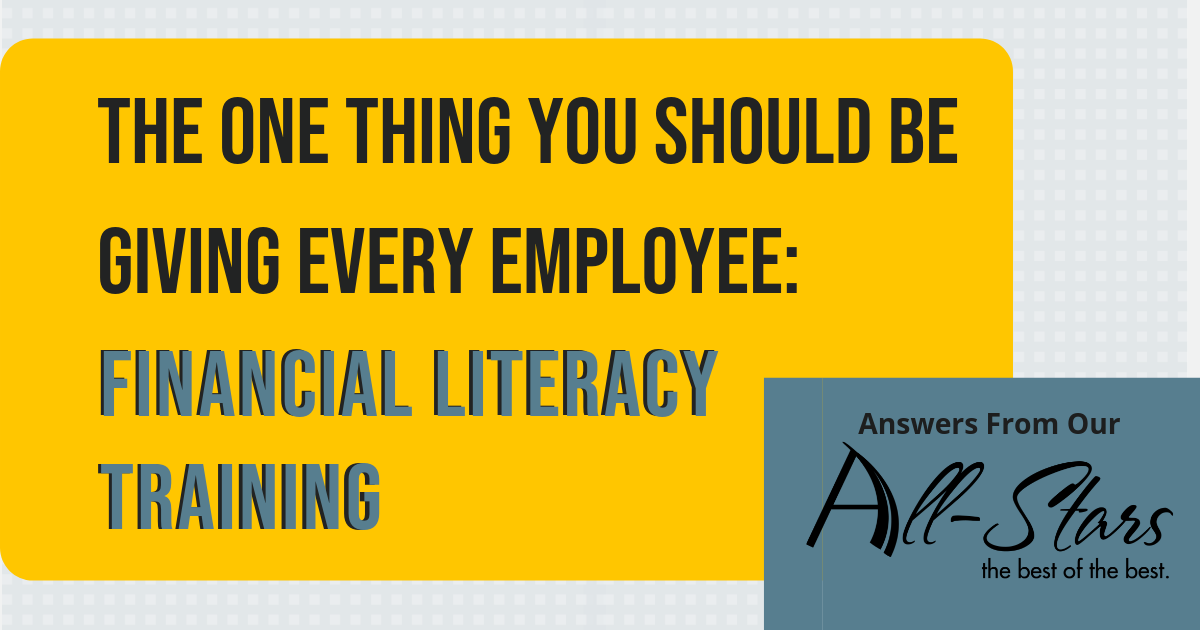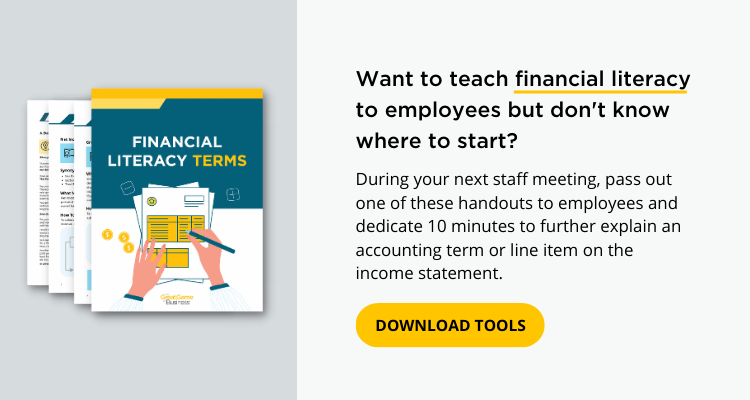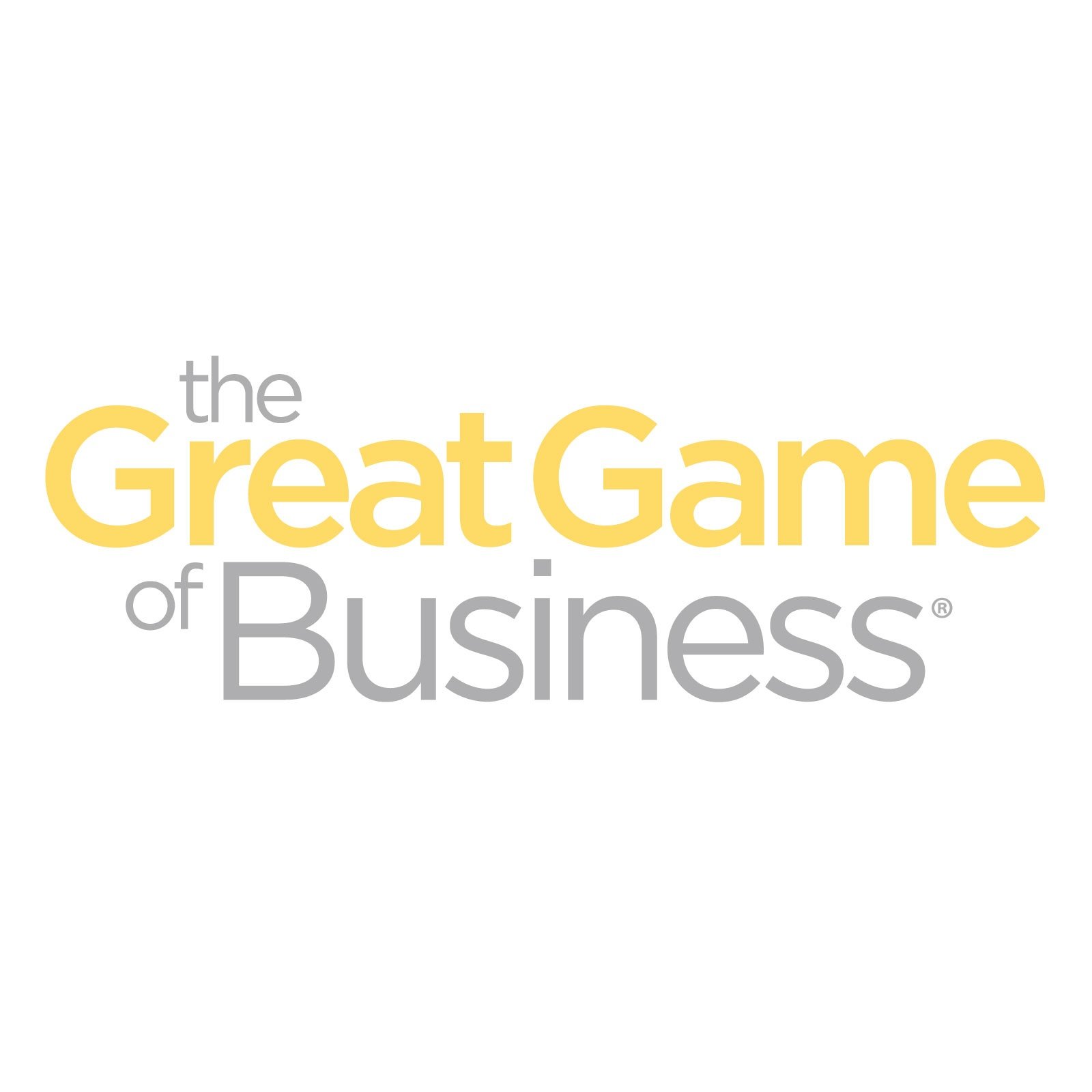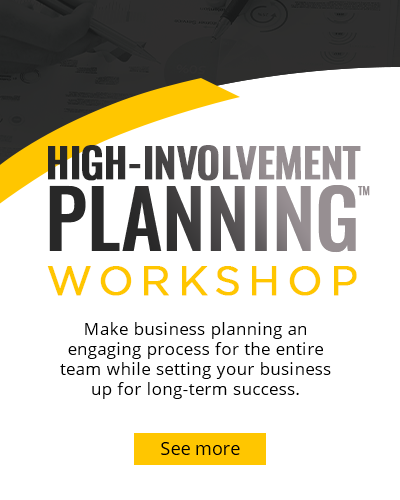
It's simple. You cannot successfully implement the Great Game of Business® unless every employee understands the financials and drivers of the business. But what puts the "best of the best" in open-book management above the rest when it comes to financial literacy training?
We asked this year's All-Stars how they transformed their businesses to create a financial literacy focus that promotes engagement and accountability from top to bottom in their organization.
"We have recently implemented several new initiatives to improve our business and financial literacy including teachable moments at Huddles twice a month as well as a “Word of the Week” chosen and defined by the Huddle leader. We also have a book club that meets once a week and are currently testing a new employee mentoring program that will help new employees understand GGOB and begin to develop basic financial literacy."
"In our Huddles, employees are not only asked to present the numbers, but also to explain what they mean. Employees know they will have to understand the "why" behind the number, and they often have one-on-one meetings with their managers to really know and be able to explain what they are talking about.
We have also developed financial literacy flash cards to explain financial terms in a way that is directly applicable to our business. We provide real examples and questions to confirm the learning. New terms are discussed in each weekly Huddle."
"Our CFO and his finance team do not have offices, but rather have embedded themselves with their team in the open floor plan, available to any employee who has a question. Each week at the Huddle, a team member from each department shares the results and stories that go along with the numbers. We have also established an on-going orientation program, which teaches financial terminology via fun games."
"Teaching our team the rules of The Game is a crucial driver in our winning culture. At our company, we have formed a Financial Literacy Committee sponsored by our CFO. All employee-owners go through a series of financial trainings within their first 180 days. They continue to receive more knowledge as new sessions are created. Many of these concepts are reinforced and “made real” during Huddles.
Additionally, the Ownership Culture Committee (OCC) and All-Staff Huddle organizers’ ears are open for specific business topics of interest because our employee-owners asked to be informed!"
"In our all-team Huddles each week, we review the scoreboard and take this opportunity to explain both positive and negative variances in detail so the team understands the “why.” In 2017 we developed an in-house class using real money to explain what it takes to run a business based on our percentage of costs and how small the bottom line is after all obligations are paid. This was an eye-opener for all of the participants."
"Our orientation includes a GGOB mini class for all new employees to go over the basics of GGOB. This class includes reviewing all of the common financial terms we use each week, the importance of KPI’s and why we continually reinvest in the business. We also go over the purpose of MiniGames, an overview of HIP and the strategic plan."
Other articles you might like:
.png)








.png)




-5.png)

